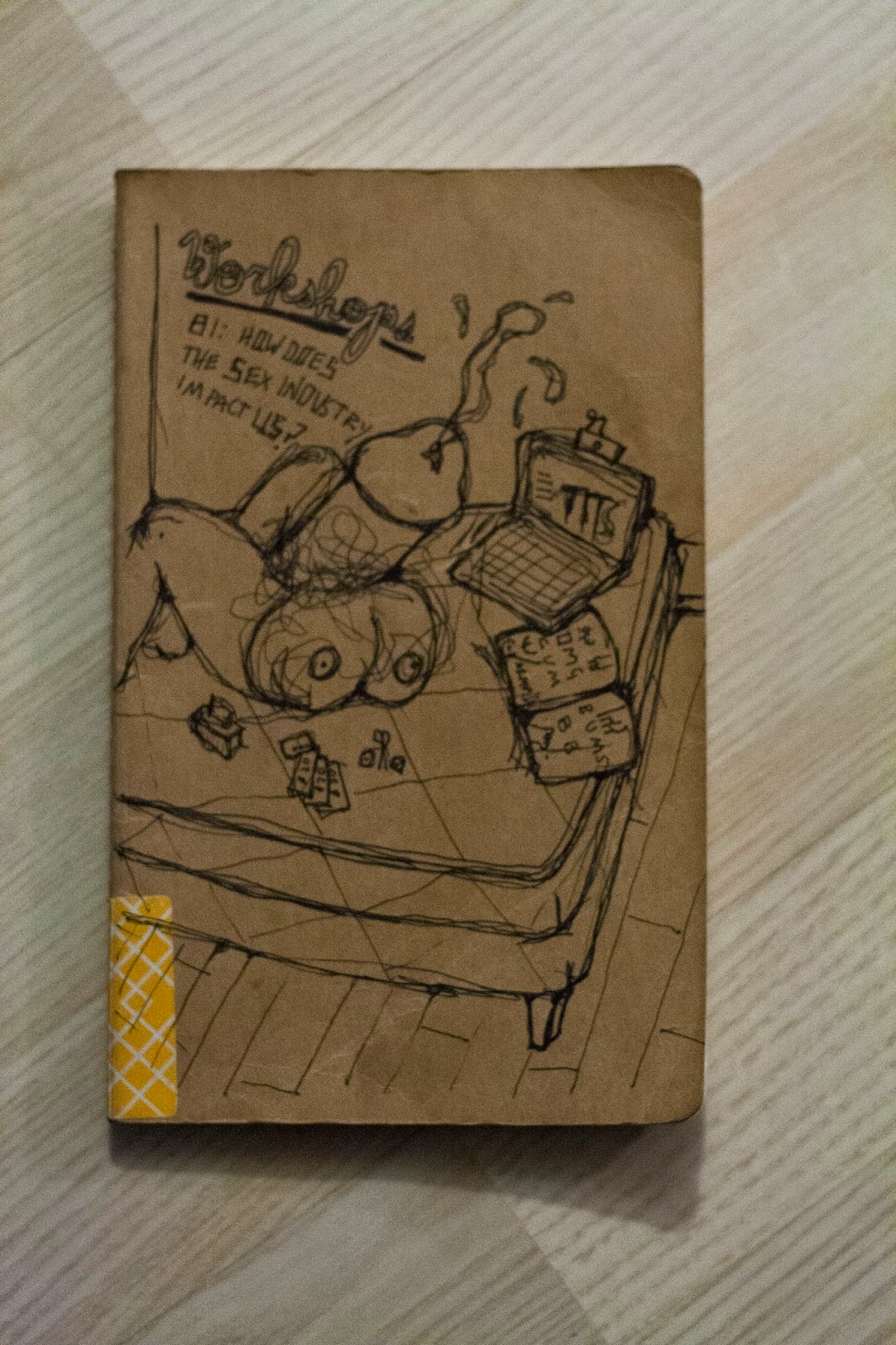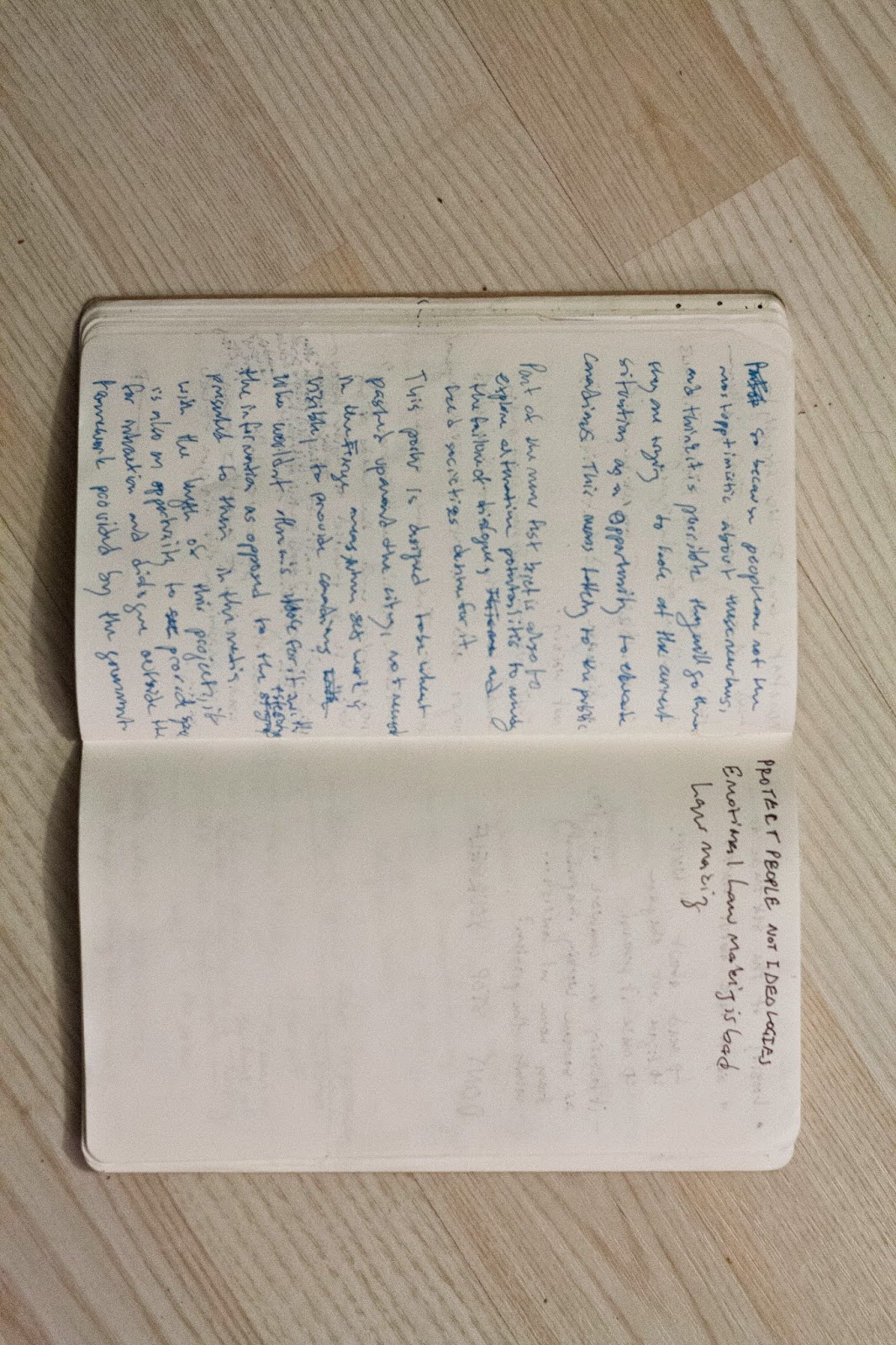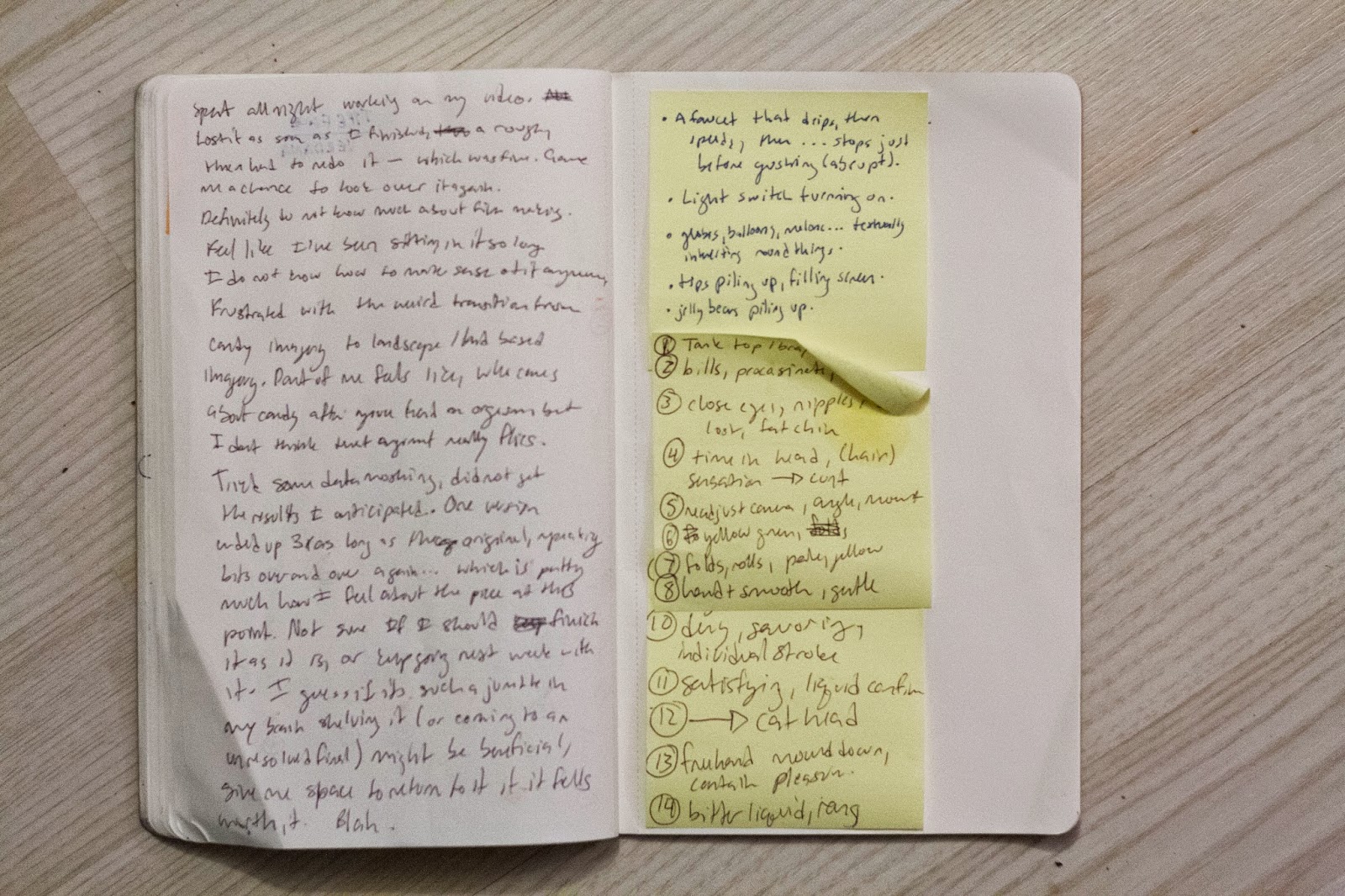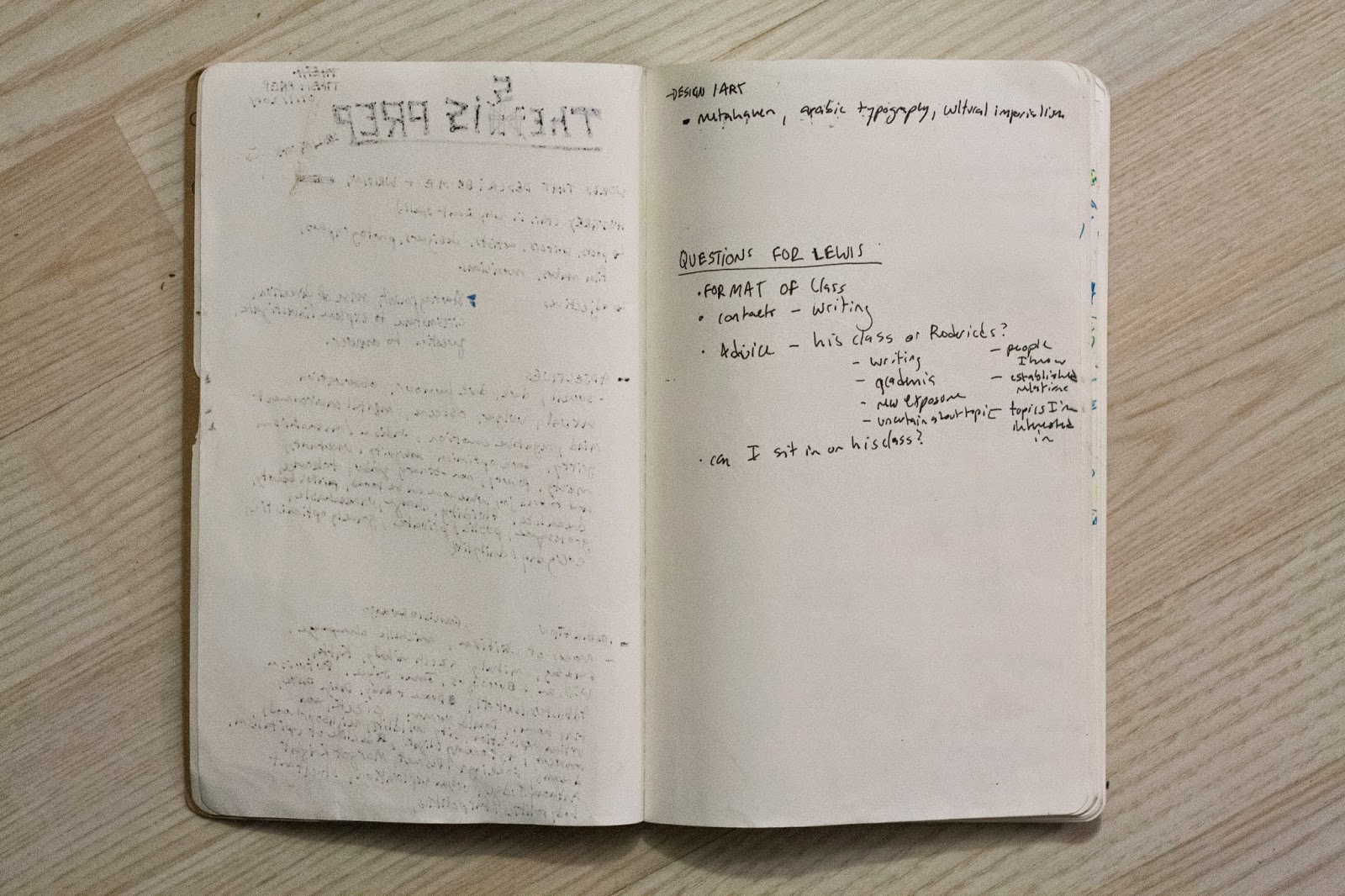Pecha Kucha Oct 21
from
josephine norman on
Vimeo.
1. TOPIC - INTRO (cheque)
At this point, I am talking about the nature of work by talking about sex work. This includes revealing or demystifying sex work and portraying it as a job like any other, something someone uses to pay bills, buy groceries, something someone finds both positive negatives in. Some thing some people are more suited towards than others.
2. PROJECTS - POSTER
As my first project, I created a poster about the conversation happening about sex work laws in Canada and how they are being built on emotional reasoning rather than research and experience. I did this as my first project as I felt I had to get it out of my system. I felt I can’t talk about sex work without talking about this.
3. PROJECTS - VIDEO
For the past few weeks I’ve been working on a video about the discrepencies between fantasy and reality when working as a camgirl. The voice over is a mashup of two stories, one is a description of an ideal experience and the other as a very raw and honest description of what camming is like when you’re having a bad day.
4. PROJECTS - VIDEO (sell your panties)
The video uses two types of glitching. A glitch, like a camgirl, is a fleeting and personal experience, and shows how flaws in technology can be beautiful. Rosa Menkman and Nick Briz heavily informed my decision to use this process in my video, as a result all of the glitches in the video are authentic, not aesthetic.
5. TOPIC
Okay, to be honest… at this point I do not really, and do not ever really expect to feel equipped to discuss my desired core message in depth, partially because when I read others attempting to talk about what I want to talk about, my eyes and my brain glaze over and images of men in overalls with hammers fill my mind.
6. TOPIC
Instead I will tell you this story. The other day I was talking to some students who graduated a few years ago, I told them about a joke I have with my friend -- I tell her I have this typography class, and we’re learning to do X Y and Z, but really, we are learning how to subvert capitalism. They looked at me wide eyed and said, “really? Maybe OCAD has changed”.
7. TOPIC
That reaction sort of blew me away, but it revealed to me that my experience at OCAD and this lesson I feel it tries to teach probably speaks more to me and what I care about than the institution as a whole, and I should probably accept myself as product of not only my environment but also my choices and individual beliefs.
8. TOPIC
When I think of sex work, I do not think of people selling their bodies out of desperation. I think of people working on the fringes of an economy that prioritizes jobs that do not offer what people need to survive. I think of people who are scrambling to find an alternative to the status quo.
9. PROCESS - BLOG (disclaimer)
Since this summer I have been keeping a blog. Every time I read, watch or make something, I make a post about it. I try to include a name, creator, a link to the material, and notes on what I thought about it. It is not the most readable but I do have disclaimer that says any especially incoherent posts are coming from a phone, intoxicants, or geniune laziness.
10. PROCESS - ACADEMIA / MAP (map)
At the start of this semester, I read a lot academic material, and collected a lot of things I would never have the time to read or decipher. I made a giant mind map that feels somewhat impenetrable to me now. If I find this mind map scary, I can’t imagine how others view it. I will probably try to approach map concept from a different angle in the future.
11. PROCESS - PHOTOS (photogrid)
I have also been taking photos of material in my daily life relating to my topic. While some of these photos are spontaneous, some of them are staged. As I develop a better understanding of what I’m interested in exploring, finding inspiration will likely be easier. I have found them helpful in my making.
12. PROCESS - WRITING
Using the motivation behind the photo project (daily experience as inspiration), I have begun recording personal experiences relating to my project. For example, one of them is about some monotonous manual labour I did a few weeks ago with two friends who live on disability, and the relationship they, and I, have with work.
13. PROCESS - WRITING
I also included a summary of a story someone in my writing group wrote about a very competitive, oblivious, work focused man who works at an escort dispatching service that shares the floor of an office building with the call centre of a women’s helpline.
14. PROCESS - DREAMS
In addition to this I am recording related dreams I have, through writing or drawing. One was about fourth year at OCAD and a weird, emotional hivemind / unity activity that ended in glitching technology and tears of joy.
15. PROCESS - DREAMS
In another I dreamt I was an escort at a funeral and my client wanted to cry about his dead friend, but he had also brought me half a smartie mcflurry. The way I like to eat mcflurries is by sucking all the ice cream out of my mouth and chewing the smarties with my front teeth. And it is very hard to talk or express sympathy while doing that. And the ice cream was melting.
16. NEXT - INTERVIEW
Around week 4 I told myself I wanted to do 4 projects this semester, so I would like to do two more. One of the underformulated ideas that have been jumbling in my brain is to interview sex workers about work, not life stories or gritty details about the nature of their job, but about their opinions and experiences with other kinds of work.
17. NEXT - CONTRAST
I have also thought about personally talking about experiences with other kinds of work as a contrast the video I’ve made. Examining fantasy and reality in another job in a similar way, for example … in a call centre, where - if you want to keep your job - when someone verbally abuses you you have no power to stop them or exit the situation.
18. NEXT - SPECULATIVE
As I develop further understanding of my topic I would really like to do a speculative project about the future of sex work using foresight methodologies. At this point I’m still uncertain about what areas I’m really looking at and not sure if this is the right next step for me.
19. NEXT - DIGITAL LABOUR
There are key words that are in my brain as result of working on my video - words like commodification, digital labour and surveillance. I feel I would like to continue pursuing those topics, but I’m not sure if it’s a rabbit hole that will get more interesting as I go deeper, or if I want to stay on the surface and explore more
20. FINAL
In the past few weeks I have really opened up my process and become more comfortable with making. I know I am talking about the nature of work through talking about sex work, and that I am interested in being critical of capitalism by doing this, but I am keeping an open mind about my next step and waiting to see where the rabbit hole leads me.
---------------------------------
ROUGH
At this pint, in my work, I am moving towards talking about the nature of work through sex work. This includes revealing / demystifying sex work and portraying it as a job like any other, something someone uses to pay bills, buy groceries, something someone finds both positive negatives in. Some thing some people are more suited towards than others.
One of the issues people have with sex work is that they view it as a form of exploitation. In talking about sex work as work, I would like to talk about work in general, especially in regards to all work as exploitation.
I found a book called Work, Capitalism, Economics, Resistance by Crimethinc that discusses late capitalism. In this book sex work is described as existing outside the capitalist / exploited classes, and in an “excluded” class -- a class that operates on the fringes of the economy.
… at this point I do not really, and do not ever really expect to feel equipped to discuss my desired core message in depth, partially because when I read others attempting to talk about the topic my eyes and brain glaze over and images of men in overalls with hammers fill my mind.
The other day I was talking to some students who graduated a few years ago, I told them about a joke I have with my friend who does not go to OCAD -- I tell her that the main thing OCAD has to teach its students is that capitalism is oppression, I tell her I have this typography class, and we’re learning to do X Y and Z, but really, we are learning how to subvert capitalism. They looked at me wide eyed and said, “really? Maybe it’s changed in the past few years”.
That reaction sort of blew me away, but it revealed to me that my experience at OCAD and this lesson I feel it tries to teach probably speaks more to me and what I care about and the classes I choose to take, and the teachers I choose to take them with more than the institution as a whole, and I should probably accept myself as product of not only my environment but also my choices and individual beliefs.
As my first project, as you know, I created a poster about the conversation happening about sex work laws in Canada and how they are being built on emotional reasoning rather than research and experience. I did this as my first project as I felt I had to get it out of my system. I can’t talk about sex work without talking about this. In the process of making that, I read a lot of things -- largely academic -- and collected a lot of material I would never have the time to read or decipher. I also made a giant mind map that feels somewhat impenetrable to me now.
After this, I started reading academic material on camgirls. Most of this was written or researched over 5 years ago, and because of the speed the internet and our relationship with it changes, the material feels out of date already. However, in reading this I pulled some keywords I felt were interesting, such as fantasy / reality, public / private, and authenticity.
As a result of my frustration with the reading material I was finding, I resorted to my own experience and past work. I mashed together two stories I wrote this summer, one written to be an appealing description of what an ideal show is like from my perspective, for use as a marketing tool. Another was written as a very raw and honest account of one of the worst days I had while working. I spent fucking well forever rewriting, editing, cutting excess material, and showing it to trusted friends for feedback before coming to a point where I accepted it would never be perfect or talk about all the things I wanted it to talk about while being reasonably short and easily digested in time based media.
During this editing process I researched the relationship between design and film, essay films, typography in films. In one of the original stories I wrote, I disassociate from my body and see it as a water wonderland. In my mind, the process of disassociating in that way is visualized in a way that reminds me of a time when I was a child playing tag, and I fell and smeared the palm of my hand in red, wet dog shit. In my research about essay films, I came across glitching, and found some types of datamoshing matched exactly the visual that existed in my mind. I went down the glitch rabbit hole and became quite enamoured with Rosa Menkman and the Glitch Theory Manifesto, and Nick Briz’s desktop doumentaries / essay films about glitching. It also helps that glitch theory speaks to a lot of the topics I was thinking about with my camgirl project. A glitch, like a camgirl, is a fleeting and personal experience. A glitch, like a live camgirl, is a live interaction between your system and the data in the video / audio / image file. And a glitch, like a camgirl who lets her reality show, can be taken as an annoyance or be seen as an accidental thing of beauty.
I had a lot of fun with testing different ways to glitch images, audio and video, and exploring ways these things could infuse additional (subliminal) meaning into the material I was working with.
This video is very nearly completed, it just has a few imperfections related to audio/video syncing I have to fiddle with, and I’d like to explore the typography some more. I’m pretty excited about it and feel like it will be really hard for me to move on from this format. I keep saying to myself, augh, I’m a designer, I can’t make videos all year.
Through this whole process, I am keeping a blog. Every time I read or watch something, I make a post about it. I do my best to include name, author / creator, and a link to the material, and notes on what I am looking at / what I thought about it / what is important. Like many of you, I am trying to take pictures of things revolving around my topic my day to day life. Because I have opened my creative process to allow more personal things, I have also started collecting and writing about different experiences that relate in my day to day life.
For example, a few weeks ago I worked for a day filling nicotine bottles with two close friends who live on disability because they have such severe anxiety and depression they have difficulty holding jobs because they can not reliably show up to work. One of them works at this nicotine place under the table, but he is literally always working (answering emails on his phone) because he feels so guilty for the times he misses a shift because he has spent 36 hours asleep. We spent the day trying to convince the owners to buy a machine we had seen that could do the job we were doing more efficiently, for cheaper.
One of them is about some monotonous manual labour I did a few weeks ago with two friends who live on disability, and the relationship they / we have with work.
I also included a summary of a story someone in my writing group wrote about a very competitive, oblivious, work focused man who works at an escort dispatching service that shares the floor of an office building with the call centre of a women’s helpline.
In addition to this I am recording related dreams I have, through writing or drawing. One was about fourth year at OCAd and a weird, emotional hivemind / unity activity that ended in glitching technology and tears of joy.
In another I dreamt I was an escort at a funeral and my client wanted to cry about his dead friend, but he had also brought half a mcflurry and the way i like to eat mcflurries is by sucking all the ice cream out of my mouth and chewing the smarties with my front teeth. And it is very hard to talk/express sympathy while doing that. And the ice cream was melting.
As for where I go from here… around week 4 I told myself I wanted to do 4 projects this semester, so I would like to do two more. At week 4 I had the idea that I would do camming next, then the impact of the sex industry on the consumer, and .. something about archetypes and sexuality and creative flow. But now that I’m in this lovely world of anticapitalism and glitch art and digital labour and feel like I’ve been exposed to a wealth of opportunities to criticise capitalism through this kind of sex work that is a type of digital labour, I feel like I would really like to continue pursuing those topics, but I’m not sure how to do that or if it’s a rabbit hole that will get more interesting as I keep going deeper, or if I want to stay on the surface and keep exploring.
Some more formulated ideas that have been tumbling in my brain have been
1) interview sex workers about work, questions people doing usually ask sex workers ie; not life stories or gritty details about the nature of their job, but about their opinions and experiences with other kinds of work. I know some people who are open to this / interested in it, but I am concerned about writing questions that are open ended and not leading. Would probably have to be more open minded than I currently am going into it.
2) As I develop further understanding of my topic I would really like to do a speculative project about the future of sex work using foresight methodologies.
3) But I would also like to keep making videos.
I feel like I have really opened up my process and become more comfortable with making in the past few weeks. Although I know I am talking about the nature of work through talking about sex work, I am keeping an open mind about my next step.
----------
FEEDBACK
- who should my audience be / who is my audience
- how explicit, tone / content, contemporary / haven't thought of or need to rethink their position
- censoring myself
- talking in abstraction - is that interesting, should be able to articuate core message at this point (in education)


















































